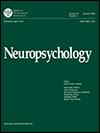Journal of Humanistic Psychology, Ahead of Print. Cognitive-behavioral interventions for anxiety and obsessive–compulsive disorder have received a great deal of attention for their growing evidence base. These therapies focus on symptom elimination by way of cognitive and behavioral change and, though undoubtedly helpful, miss important symbolic aspects of the client’s experience of these disorders that have the potential for meaning and the resolution of traumatic history. Jungian psychotherapy, like other depth-oriented and humanistically oriented approaches, is concerned both with meaning in the client’s life and the process by which the client becomes more themselves by integrating fragmented, wounded, and hidden aspects of the psyche—a process known as individuation. This article integrates Jungian concepts with trauma theory to generate an integrative framework for psychotherapy with individuals with anxiety and obsessive–compulsive disorder. The case of “Stefan,” which provides a description of trauma-informed psychotherapy incorporating eye movement desensitization and reprocessing within a Jungian framework, is then presented to illustrate key elements of this theoretical integration.




